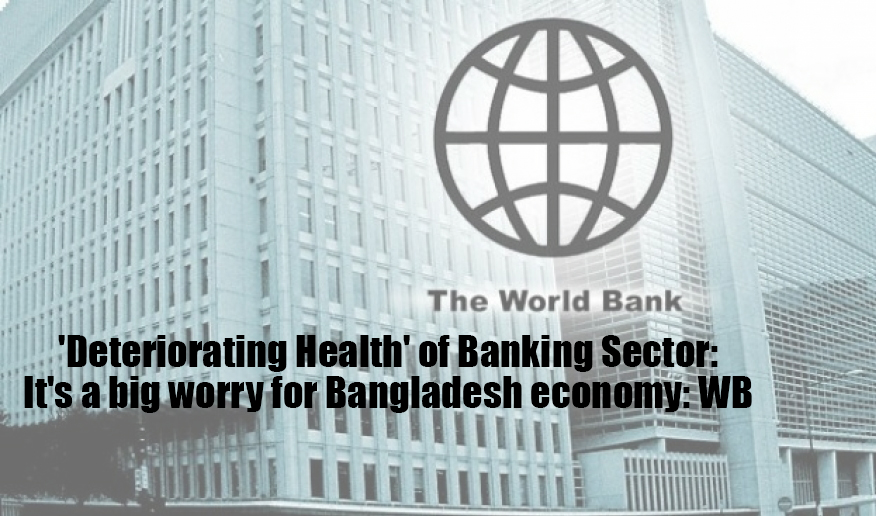The deteriorating health of banking sector has become a major concern for the economy, the World Bank said yesterday.
The multilateral lender came up with the observation at the launch of its April issue of the Bangladesh Development Update.
The report, published twice a year, cited large nonperforming loans (NPL) in both state-owned and private banks, continued recapitalisation of state-owned banks, poor risk management practices, and corruption as some of the causes behind the ailing health of the sector.
“Little actions were taken to penalise defaulters, improve risk management and strengthen bank management,” Zahid Hussain, lead economist of the WB in Dhaka, said presenting the report at the WB office.
“From risk management point of view, situation in the banking sector is a matter of big concern,” he said.
Despite some push from the Bangladesh Bank, asset quality and governance has not improved. State-owned banks performed poorly with large NPLs, bad governance and continued recapitalisation, according to the report.
Tk 11,660 crore had been provided to state banks between 2012 and 2017, it mentioned.
Bailing out banks using taxpayers' money continued this year even though bailouts had been proven to be ineffective time and again.
“The setback from several major financial scams has a heavy toll on both the health and reputation of SCBs [state-owned banks],” reads the report.
The authority's lack of readiness to seriously recognise and address root causes behind the situation in the banking sector is not helping, it said.
Nine fourth generation banks are also beset with large amounts of NPLs and are making losses, it added.
The report also commented on how the concentration of large amounts of loans taken by a few borrowers threatened the entire industry.
“When exposed to various credit shocks, 23 out of 49 banks would become undercapitalized mainly due to large borrowers. This was a clear recognition of the gravity of the banking sector woes in Bangladesh,” it said citing the central bank's Financial Stability Report 2016.
NPLs have been rising at a fast pace over the past years. NPLs surged to over Tk 80,000 crore or 4 percent of the GDP for the first time at the end of September 2017 from Tk 65,731 crore a year back.
The total NPLs accounted for 10.67 percent of the total outstanding loans in the banking sector at the end of September 2017.
In addition, over Tk 40,000 crore bad loans were written-off.
“Once restructured, rescheduled loans and write-offs are factored in, the NPL size would increase very significantly.”
Poor management of state banks accompanied by malpractices and corruption has contributed to the high volume of NPLs.
“SCBs have been awarding loans even without routine assessment of the potential risks associated with the borrower. The government's tendency to fund loss making state owned enterprises through SCBs has aggravated the problem even further.
“Defaulters are hardly ever penalized while on the contrary loans are restructured to permit further lending to the same borrowers. Such regulatory forbearance has given wrong signals leading to moral hazards.”
The multilateral lender also said the two amendments in the Bank Company law passed recently were dubious in nature and likely to undermine good governance.
“Major changes were made to Islami Bank management, which had already been suffering from poor governance, on allegations of terror financing and political violence.”
The WB suggested tackling the sector's poor risk management practices through supervising and improving the legal and financial frameworks for loan recovery.
